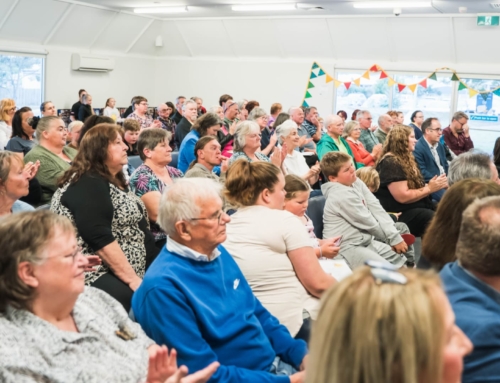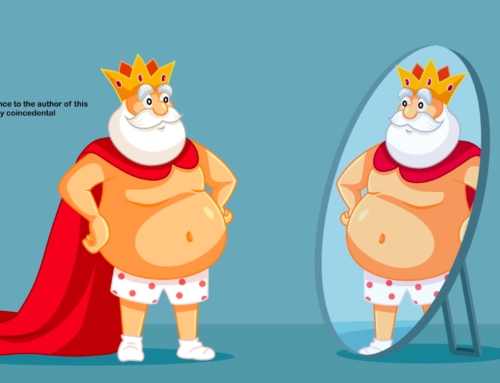
My Dilemma with Discipleship
BY DERMOT COTTULI
Mathew 28:16- 20
Then the eleven disciples went to Galilee, to the mountain where Jesus had told them to go. When they saw him, they worshiped him; but some doubted. Then Jesus came to them and said, “All authority in heaven and on earth has been given to me. Therefore go and make disciples of all nations, baptising them in the name of the Father and of the Son and of the Holy Spirit, and teaching them to obey everything I have commanded you. And surely I am with you always, to the very end of the age.”
If you’ve grown up in an Evangelical or Pentecostal church you most likely have heard that the greatest responsibility of any believer is to “Go and make disciples!!” Southern Baptist Pastor Rick Warren, coined the famous phrase, “A great commitment to the great commission and the great commandment grows a great church.” I’ve heard people say from pulpits that we’re all meant to be “disciples who make disciples.”
The making of disciples in many churches has been pushed as the penultimate act of Christian service. I understand why people would think that, after all it was the last command that Jesus gave to 11 of his disciples before ascending to heaven, but more and more I’m starting to believe we’ve missed something incredibly important and our churches have suffered greatly because of it.
Its very difficult to read our bibles without being influenced by our cultural and denominational bias. There are so many things we take as self-evident because that’s what we were brought up believing. Changing the way we think about them can be incredibly difficult. This injunction to go and make disciples is a case in point.
Now there’s no argument that going and making disciples of all nations is the mission of the church collectively, but the question we need to tackle is whether it’s the responsibility of every single believer or just those who have been gifted to do so?
Why is it so important that we address this question?
It’s important because it directly influences what we teach in our churches regarding our expectation of a believer’s behaviour and the way they then internalise their success or failure as a follower of Jesus.
Let’s start with Jesus’ command to go and make disciples of all nations.
The first question we need to answer is, who was he addressing it to? We know that there were hundreds of committed believers at this stage, many of whom had seen Jesus resurrected – Paul mentions he appeared to 500 brothers and sisters after his resurrection at the same time. And yet there were only 11 disciples with Jesus when he gave the command to go and make disciples of all nations. Now that doesn’t mean that they weren’t then meant to pass it on to others but have you ever wondered why when you read through the Epistles, Paul, Peter, James and John don’t highlight the making of disciples by all believers?
If it’s so important then surely it would be scattered throughout every letter written to the churches? The silence is deafening!
What we do find over and over again are instructions to the believers on how they should act towards others and a constant injunction to stop sinning and live righteously. If the making of disciples was the number one priority of every believer wouldn’t it get the same amount of airplay as doing good works does?
Could it be that we have taken a command given to some and made it a command to all?
Is it possible that there are people within the body who are gifted to teach and therefore have a responsibility to do just that? According to Jesus, teaching is an integral part of the making of a disciple (teach them to obey everything I have commanded you). Now whilst everyone can sing, we wouldn’t tell everyone that they have to audition for The Voice, just as we wouldn’t expect everyone in our church to be able to stand in front of a group of strangers and teach on the difference between the Old Covenant and the New just because they can talk. I know how to run but there’s no expectation that I’d be as fast as Usain Bolt over 100m.
But what if we lived in a society where everyone was expected to sing in tune or speak in public regardless of their ability, gifting or personality? That would be totally unfair, wouldn’t it? We’d think it was ridiculous and we’d call it out. For something to be expected of everyone means that everyone is capable of doing it.
Paul picks up on this exact topic in his discourse about the body when he talks about the different gifts that we each have in 1 Corinthians 12 and Romans 12:6-8. He says we all have different gifts and that we shouldn’t think that everyone will be the same. There is no expectation by Paul that everyone will have the same gift and correspondingly the same responsibility within the body. If that’s the case why don’t we think that everyone should be an evangelist? Should everyone be an apostle as well? Or a prophet? We can all share the hope that we have when we are asked but not everyone is gifted/equipped to teach. In fact I would say that one of the reasons that the church is seen in an unfavourable light at times is that we have people trying to do things that they aren’t gifted to do.
Ask yourself, what does the Bible say everyone is capable of doing and expected to do? Then teach that as the responsibility of all.
Pastors, don’t fall into the trap of preaching your own job description onto your congregation. There are those in our churches who are responsible for the making of disciples. They’ve been called and gifted to do it but not everyone is in the same boat.
If that isn’t enough to get you thinking ask yourself this question, “What’s the criteria that Jesus will be using when judging the lives we’ve lived?”
Matthew 25:31-46
“The Son of Man will come in all his glory. All the angels will come with him.
(This isn’t a parable, this is a foretelling of the future)
Then he will sit in glory on his throne. All the nations will be gathered in front of him. He will separate the people into two groups. He will be like a shepherd who separates the sheep from the goats. He will put the sheep to his right and the goats to his left.
“Then the King will speak to those on his right. He will say, ‘My Father has blessed you. Come and take what is yours. It is the kingdom prepared for you since the world was created.”
“I was hungry. And you gave me something to eat. I was thirsty. And you gave me something to drink. I was a stranger. And you invited me in. I needed clothes. And you gave them to me. I was sick. And you took care of me. I was in prison. And you came to visit me.’
“Then the people who have done what is right will answer him.”
(Just stop here for a moment – Jesus has just told us what it is that we should be doing with our lives)
‘Lord,’ they will ask, ‘when did we see you hungry and feed you? When did we see you thirsty and give you something to drink? When did we see you as a stranger and invite you in? When did we see you needing clothes and give them to you? When did we see you sick or in prison and go to visit you?’
“The King will reply, ‘What I’m about to tell you is true. Anything you did for one of the least important of these brothers and sisters of mine, you did for me.’
Not once does he mention any of the the things that we typically equate to being a “good” Christian in your typical western church.
There is something that we’re all called to do.
Just for a moment think what it would be like if everyone in our churches believed that doing good was the number one responsibility of every believer and it was the main thing that Jesus would be judging the fruitfulness of their lives against. What type of impact do you think the church would be having in our communities if that was the case? How prepared would the soil be for the gospel?
Let’s teach what the Bible actually says and let’s emphasise the things that our people are dying to know, lest they die not knowing.
It’s okay if you disagree with what I’ve written above but if it helps you think more clearly about your practice then that’s a good thing. Don’t be afraid to ask questions, even if you feel you’re disrespecting a sacred cow. We all see dimly as through a dark glass but we have this confidence that the Holy Spirit will lead us into all truth. So let’s not stumble over the stones in the road but instead press on to take hold of all that Jesus has for us.






Leave A Comment